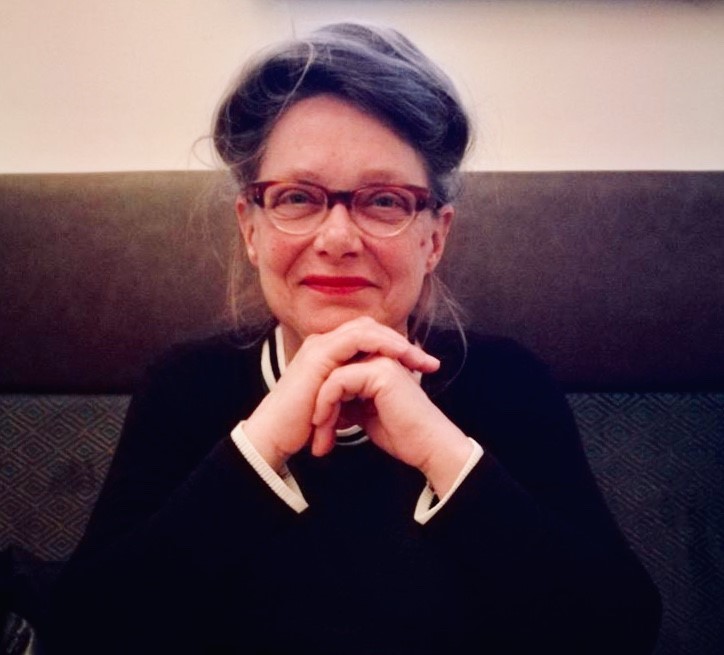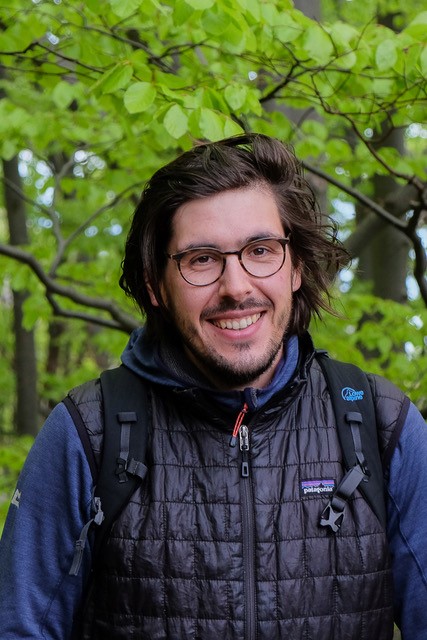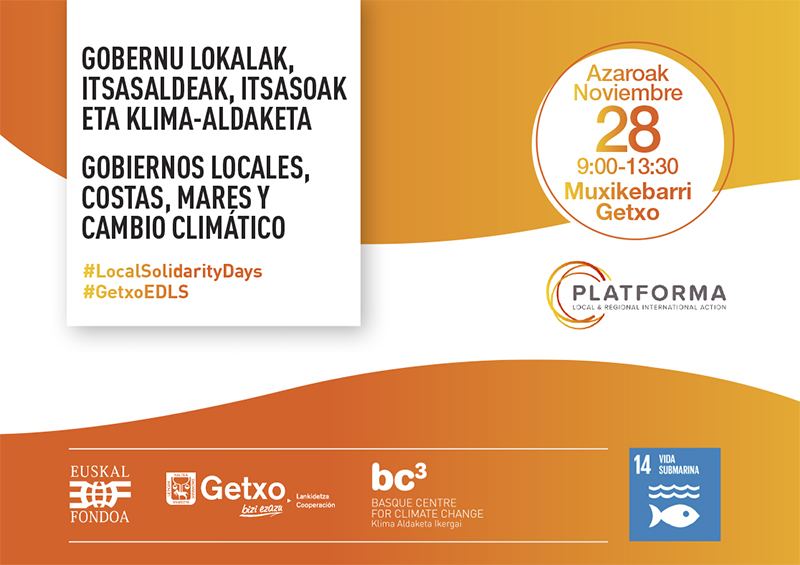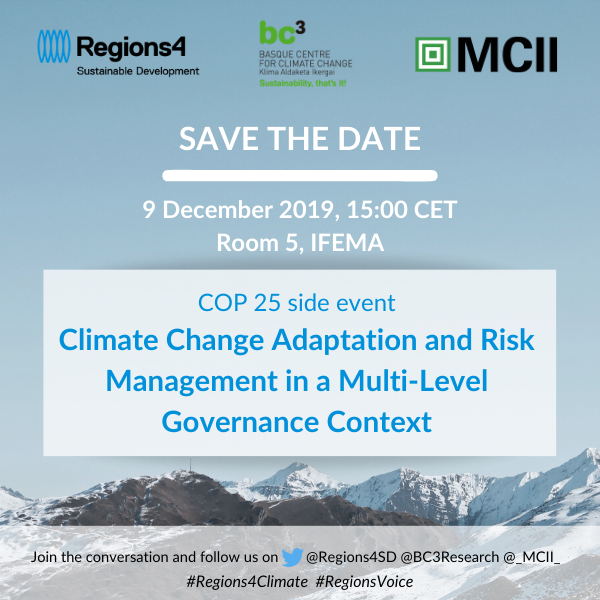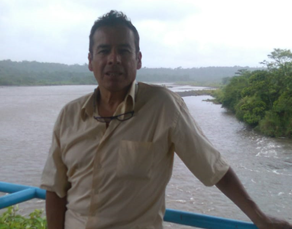climate change
ESP10 Word Conference – Aries Pre-Release
Leibniz Universität Hannover (LUH) nstitute of Physical Geography and Landscape Ecology, Schneiderberg Str. 50 30167,Hannover,GermanyThe training session ARIES (Artificial Intelligence for Ecosystem Services) will illustrate how the ARIES modelling framework implements integration and interoperability approaches through semantic web modelling and how this approach can overcome some of the common challenges of data and model integration, providing a broad range of collaborative models from simple to complex, while efficiently reusing scientific and stakeholder knowledge and sharing it with the larger ecosystem services community.Alivedemowill show how its web interface k.Explorerworks.
BC3 Seminar: Can co-creation of (students of) the arts and sciences enhance public climate-consciousness?
BC3-Basque Centre for Climate Change Sede Building 1, 1st floor, Scientific Park of the University of the Basque Country,Leioa,Bizkaia,SpainOne of the most challenging aspects of the Anthropocene and ongoing climate change is the aspect of change. Environments change, we change environments, so now humanity needs to change. Change our perceptions of the planet and the self, our research and working methods, our idiom and visual narratives, and also teaching methods. Drawing from experiences of artists collective Satellietgroep and the educational pilot project called Beyond Technology, Dutch artist-curator Jacqueline Heerema shares methods that target at inclusive co-creation of knowledge to enhance professional and public climate-consciousness.
BC3 Seminar: European forest ecosystem dynamics mapped from space
BC3-Basque Centre for Climate Change Sede Building 1, 1st floor, Scientific Park of the University of the Basque Country,Leioa,Bizkaia,SpainIncreasing mortality has been reported for many forests across Europe, but exact rates and trends remain poorly quantified. We tackle this lack of knowledge by using satellite data for quantifying and mapping rates and trends in forest mortality across Europe.
“Gobernu lokalak, itsasaldeak, itsasoak eta klima-aldaketa”
Getxo Getxo,Bizkaia,SpainEl próximo 28 de noviembre tendrá lugar en Getxo la jornada “Gobiernos locales, costas, mares y cambio climático”, que organizamos junto con Euskal Fondoa y el Ayuntamiento de Getxo, con el objetivo de dar a conocer qué se está haciendo desde Euskadi para conservar los ecosistemas marítimos y costeros, tanto desde la Ciencia como desde las Administraciones públicas locales o la Cooperación. Contaremos para ello con expertas y expertos de BC3, el centro tecnológico AZTI, la ONG Medicus Mundi, o el propio Ayuntamiento de Getxo.
COP25: “The role of ruminants on climate change mitigation: the good and the bad”
Spanish PavilionThe objective of the event panel is to discuss about the role of ruminants livestock systems on delivering low-carbon pathways, taking into account the different world contexts. This panel will bring together and discuss different new scientific/technical information to enhance the societal understanding of the real challenges and opportunities that grass-fed livestock systems (ruminants) have in the face of climate change mitigation. Participants will have an opportunity to also gather new evidence that updates current GHG estimates for ruminants (based on IPCC methodologies), explores new GHG reference baselines and the link of different emissions pathways with future global warming, while disscusion on how society percives the issue of livestock contribution to climate change through the eyes of an enviroemental journalist.
The macro case for climate-related investment: some figures for Spain
Spanish PavilionPanellists
• Ana de la Cueva, Secretary of State of Economy, Ministry of Economy and Business
• Luis Martí, General Director for Economic Policy, Ministry of Economy and Business
• Mikel González, Basque Center for Climate Change (BC3)
Objective:
Highlight the potential macroeconomic benefits of a vigorous investment program to prevent climate change.
Climate Change Adaptation and Risk Management in a Multi-Level Governance Context
Room5 , IFEMA, COP25 VenueIn the framework of the COP25, this side event will discuss the topics of climate change adaptation and disaster risk financing as a multi-level governance challenge. Organised by Regions4 Sustainable Development, in collaboration with the Basque Centre for Climate Change (BC3) and the Munich Climate Insurance Initiative (MCII), it will highlight good practices and experiences from different levels of government. It will further reveal common challenges and provide recommendations for policymakers that could guide the development and implementation of national, regional and local adaptation plans and strategies.
CANCELLED | BC3 Seminar: Ecological implications of plants phenotypic plasticity
BC3-Basque Centre for Climate Change Sede Building 1, 1st floor, Scientific Park of the University of the Basque Country,Leioa,Bizkaia,SpainDifferent lines of evidence suggest that divergence in plasticity plays a key role in adaptation to global environmental change. Many scientists argue that genetic variation in plastic responses to the environment (G × E) could be an important predictor of species' vulnerabilities to climate change. But there is not a general pattern among either experimental or theoretical studies. Plasticity acting at the level of the individual is considered a rapid mechanism for surviving under rapidly changing conditions. But plasticity can also retard adaptation by shifting the distribution of phenotypes in the population, shielding it from natural selection. We know that not all plastic responses are adaptive. I will illustrate some examples of ecological traps, and, for the case of plants, the paradoxical decision regarding roots that we are far from understanding and modelling. Plasticity may buy time for populations, but whether it will be enough, given the rate of environmental change, is unknown.
Planetary Health: A Balance between the Welfare of the Planet and that of Human Beings
ISGlobal will be present at the United Nations Climate Change Conference (COP 25), in Madrid, from December 2 to 13, and will organise the parallel event "Planetary health: A balance between the welfare of the planet and that of humans".
BC3 Seminar: “Pueblos y Nacionalidades Indígenas” of the Ecuadorian Amazon, Shuar, Achuar, Zápara and Quichuas
BC3-Basque Centre for Climate Change Sede Building 1, 1st floor, Scientific Park of the University of the Basque Country,Leioa,Bizkaia,SpainAccelerated climate change, especially since the last half of the twentieth century, is an additional challenge for the indigenous peoples of the Amazon, who depend directly on the resources of the territory. These include subsystems like agriculture (itinerant, semi itinerant and localized) art of hunting, art of fishing and silviculture. The space where humans unify themselves with nature (abiotic and biotic) allows the weaving of networks of territoriality, "spatial memory of social and communal time."


